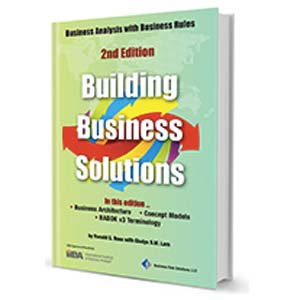The Story of Al's Spreadsheet and Absent Brains
I want to share with you the most intelligent thing I've ever heard a manager say on the fly. I'll give some background first. In one way or another, the situation that evoked what she said may seem quite familiar to you. It's the story of absent brains.
A few years ago Gladys and I were invited to conduct a one-week facilitated session for a national taxation authority. The objective was to reverse-engineer business rules from a very complex spreadsheet. The manager told us everyone was deathly afraid to touch it because no one understood how it worked. You could never tell what impact making a change would have. Used by many of their systems and embedded in various websites, the spreadsheet was mission-critical. She was finally biting the bullet and assembling some of her best staff to re-engineer it.
Everyone knew the spreadsheet by its nickname, Al's Spreadsheet. It dated to the 1970s when it was implemented under the first generation of automated spreadsheets. Notorious in the organization for more than a generation, it was devilishly convoluted.
One of these days I might hold a contest for the world's most complex spreadsheet. I've actually told this story many times around the world, and the audiences' reaction is inevitably the same — perhaps the same as yours reading this. "No, Al's Spreadsheet couldn't possibly be the world's most complex spreadsheet because my company has the world's worst!"
Around the globe there is extensive core operational business knowledge running businesses day-to-day that is highly inaccessible. Just putting your fingers on it, much less revising it, consumes vast amounts of vital resources. We live in a service provider's dreamscape. It makes you wonder how brittle (read not agile) many companies' operations really are today.
To return to the story, by mid-week we'd achieved only limited success in deciphering the spreadsheet. Progress was painfully slow. Lapsing momentarily into frustration, an idea popped into my head. I blurted out, "Hey, why don't we just go ask Al what this thing really does?!"
I assure you my intention was not to provide comic relief. To my chagrin that's exactly what happened. The whole room erupted into laughter. When the hysteria finally subsided, someone patiently explained to me (barely keeping a straight face) that nobody actually knew who Al was — or, indeed, whether Al had actually ever even existed. If so, he had long since parted ways with the organization, fading away as all workers sooner or later do into the mists of time.
That's when the manager said the thing that I found so memorable. Looking at no one in particular and staring vaguely into the far distance she said, "No organization should ever depend on absent brains."
Exactly! To ensure the continuity of operational business knowledge, no organization should ever depend on absent brains — or even on brains that could (and eventually always will) become absent in the future. To say it differently, your operational business knowledge should be encoded explicitly in a form that workers you have never even met yet can understand.
Operational business knowledge can be either tacit or explicit (read 'accessible'). The classic test for when knowledge is tacit is 'lose the person, lose the knowledge'. You make operational business knowledge explicit by expressing it as business rules.
So, make sure when you lose your Al, he doesn't walk out the door with the day-to-day knowledge you need to run your business. Encode it as business rules!
For further information, please visit BRSolutions.com
# # #
About our Contributor:
Online Interactive Training Series
In response to a great many requests, Business Rule Solutions now offers at-a-distance learning options. No travel, no backlogs, no hassles. Same great instructors, but with schedules, content and pricing designed to meet the special needs of busy professionals.










How to Define Business Terms in Plain English: A Primer
How to Use DecisionSpeak™ and Question Charts (Q-Charts™)
Decision Tables - A Primer: How to Use TableSpeak™
Tabulation of Lists in RuleSpeak®: A Primer - Using "The Following" Clause
Business Agility Manifesto
Business Rules Manifesto
Business Motivation Model
Decision Vocabulary
[Download]
[Download]
Semantics of Business Vocabulary and Business Rules